Future of Europe: Successful Croatian Stories
ZAGREB, 11 May, 2021 - Successful Croatian stories and a plan to include citizens in Europe's development were presented on Tuesday at the Croatian parliament, during the first part of the "Conference on the Future of Europe - A Vision of Croatia," during which Speaker Gordan Jandroković entered a debate with a robot.
The Conference on the Future of Europe is a pan-European, democratic project during which citizens have an opportunity to decide on how the EU should develop.
This is a project in which "citizens are in the centre," European Commissioner for Democracy and Demography Dubravka Šuica said.
Citizens can participate in panel discussions, debates and the plenary session, in which 108 seats are reserved for citizens.
An equal number is allocated to representatives of national parliaments and MEPs.
The plenary session will also include 54 Council representatives (two for each member state), three members of the European Commission, and representatives of the Committee of the Regions, the European Economic and Social Council, social partners and civil society.
"If we miss out on including citizens, we will leave room for populist ideas," said Šuica.
The conference provides a digital platform where citizens can exchange ideas, connect, make recommendations and launch initiatives.
Šuica warned that according to forecasts, by 2070 Europeans will account for only 4% of the global population and she believes that demography will be a point of interest for citizens.
Robot argues with Jandroković
Parliament Speaker Gordan Jandroković was the conference's host and during his opening address he was interrupted by Pepper the robot who warned him that he had violated the Standing Orders.
Pepper was made at the Faculty of Computing and Electrical Engineering in Zagreb.
Pepper and Jandroković then debated about parliamentary procedures.
Jandroković explained that this is a demonstration of what the future holds.
"If we are not smart enough, robots will manage us and not the other way around," he said.
Successful Croatian stories
Several successful Croatian stories were then presented to the parliament, including a project by the Sisak-Moslavina County Development Agency (SIMORA) promoting the town of Novska as the centre of the gaming industry in Croatia.
SIMORA director Mario Čelan said that the gaming industry, particularly now during the pandemic, had surpassed the film and music industry with regard to total revenue generated.
He added that the project had already launched 49 start-ups and that a new, four-year study programme for gaming technicians had been developed as well as that the National Recovery and Resilience Plan envisaged a gaming industry campus.
This has motivated young people to settle in Novska and the town now has the largest number of companies in its history, he said.
Dragan Schwarz spoke about Radiochirurgia, a special hospital for oncology patients in Zagreb.
More than 45,000 patients have been examined in the five years since the hospital's establishment and more than 4,000 operations were performed, said Schwarz.
"Our results put us at the very top of the global scene," he added.
Sven Lončarić spoke about the Artificial Intelligence Centre (CAI) of the Zagreb Faculty of Computing and Electrical Engineering (FER), which consists of 19 research laboratories, with FER currently implementing around 260 projects financed from national and international sources.
Boranka campaign, Toljanić family awarded with Croatian Sabor medal
Scouts Croatia and the Toljanić family from the island of Krk were awarded with the Croatian Sabor medal.
The Boranka project, implemented by the scouts' alliance, has been awarded with the European Citizen's Prize by the European Parliament in 2020.
Boranka is the largest reforestation project in all of Europe. To date more than 7,000 volunteers have planted more than 85,000 new trees in fire-devastated areas of Dalmatia.
The Toljanić family was named European Family of the Year in 2020. The family has 12 children and has developed a successful winery and hospitality business.
For more about politics in Croatia, follow TCN's dedicated page.
Best Zagreb Mayor By Historians: Historians Shouldn't Rate, But Većeslav Holjevac Takes Lead
May 11, 2021 - Ahead of the local elections, following the death of Milan Bandić and troubling issues Zagreb is facing at the moment, TCN reporter Ivor Kruljac wondered who is the best Zagreb mayor by historians.
With the local elections happening in Croatia this Sunday, just as every year, 2021 is no exception, with all eyes directed on Zagreb. This is no surprise, given that, for better or worse, Zagreb is the capital city, the center of politics, culture, science, education, and the spot where Croatians from other smaller towns, villages, etc. come in search of a job and new opportunities. You may not necessarily need to leave the country to leave your dreams, and despite other regions of Croatia slowly but surely developing, Zagreb is still considered by many as the necessary place to go to achieve something.
And this year, the eyes are even watching in even bigger suspense; Milan Bandić, who was the first man of the city for 20 years, passed away in February. The ever-controversial political figure (now replaced by his deputy Jelena Pavičić Vukićević, who also runs in the elections) suspected of corruption, being arrested during his mandate and on several trials, left lots of unresolved issues which the new mayor will have to address in the city's administration. Additionally, the current corona crisis caused some new challenges, and last year's earthquakes and city reconstructions are still a hot political topic among citizens.
Zagreb: History of overcoming the crisis
Challenging circumstances in 2021, no doubt, but certainly nothing Zagreb isn't used to. While settlements on the city's territory date earlier, the first mentions of Zagreb are linked with establishing of Capitol Diocese in 1094. Since then, diseases, earthquakes, floods various wars (WW1 and WW11 included, as well as the 90s war Croatians commonly refer to as the Homeland War), disrupt the peaceful life of Zagreb citizens. The city still stands. But of course, these different troubling contexts were handled not just by citizen's persistence but also by the city's authorities and leaders.
Throughout the turbulent history, Zagreb had, concluding with current deputy Jelena Pavičić Vukičević, a total of 53 mayors. The first one was as, Povijest.hr writes, Janko Kamauf, whose term lasted six years, from May 15, 1851, to 1857. He was a former city judge of Gradec, a title whose authorities basically made him the mayor of Gradec. Following the unification of rival Gradec and Kaptol into one city in 1850, he was elected to be the first leader of a city whose population at the time counted 16,036 people.
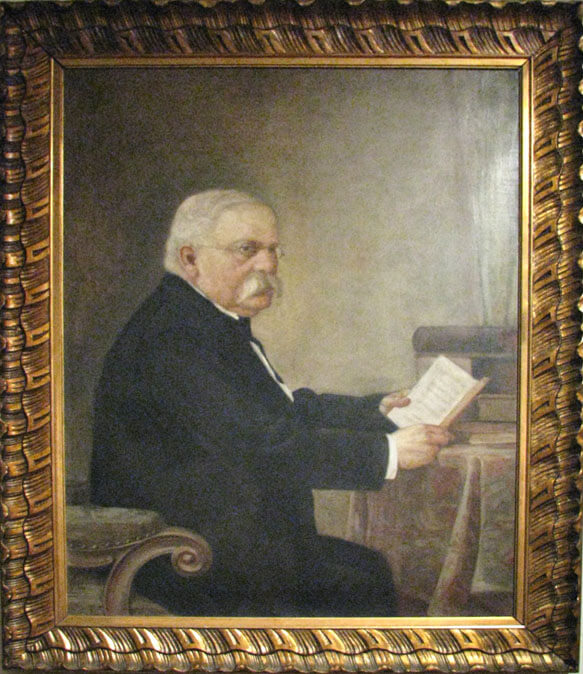
Janko Kamauf painted by Bela Čikoš Sesija, showcased in Zagreb City Museum © Unkown author, Wikipedia
He was the first, but was he the best?
I asked several historians if could they rate and pronounce in their opinion, with regards to the specific contexts, who was the best Zagreb mayor, from Kamauf to Vukičević Pavičić.
Two votes for Većeslav Holjevac!
„I'm not into grading, that's not a historian's task. Our task is to explain and put on the table facts and context of events“, said Ivo Goldstein when I asked him about the best mayor of Zagreb.
Ivo Goldstein may be best known to the Croatian public as a harsh critic of the far-right and the fascist regime of the Independent State of Croatia. As a Historian, he took an interest in various topics related to Croatian history.
At the start of his career, his focus was on Byzantine Empire and Croatian Middle Age History as well as the history of Jews in Croatia. In mid 90's he moved to the various aspects of Croatian history in the 20th century.
He was a professor of various history courses „General History of the Middle Age“ (1984-2003), history of methodology (1991-1996), and many more and today a full-time professor at the Department of History on The Faculty of Humanities and Social Sciences, the University of Zagreb (where he mastered and later completed his Ph.D. thesis at the Faculty of Humanities and Social Sciences, University of Belgrade).
Goldstein's scientific papers received positive acclaim in various countries worldwide, he hosted various projects scientific projects and associations and is very active in Croatian public space when it comes to historical issues that shape the ideas and decisions of current policies in Croatia.
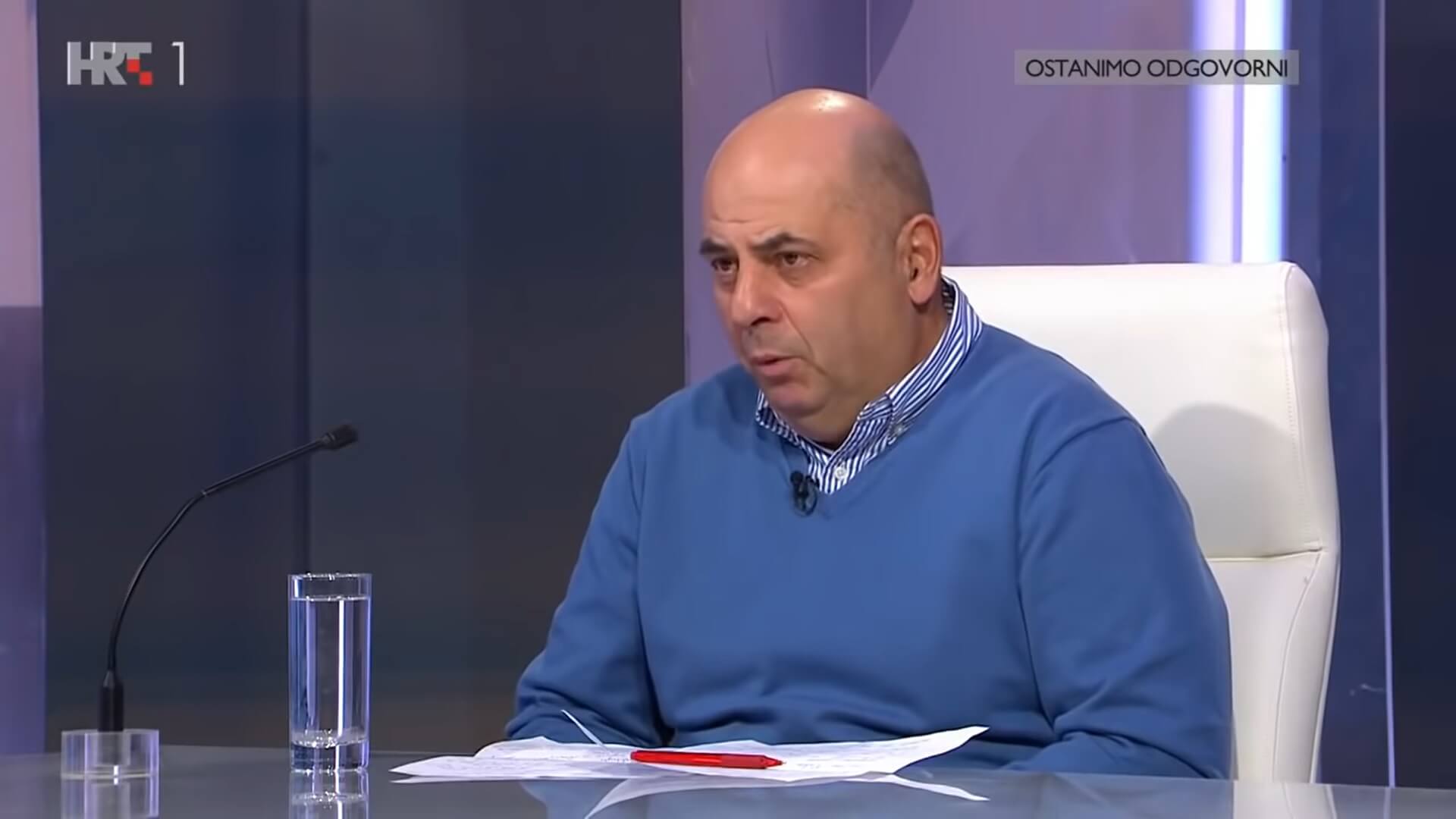 Ivo Goldstein / screenshot HRT Nedjeljom u 2
Ivo Goldstein / screenshot HRT Nedjeljom u 2
Upon explaining the role of historians, professor Goldstein nevertheless didn't mind giving his personal opinion.
„For me, there is no doubt that the best mayor of Zagreb is Većeslav Holjevac“, said Goldstein.
Većeslav Holjevac was the Mayor of Zagreb from 1952-1963 and his eleven-year mandate saw Zagreb develop and spread as the city.
„At that time, Zagreb was the capital city of Socialist Republic of Croatia, which was part of Yugoslavia. Holjevac saw a boost by liberal politics, it was the time of growth and optimism and Holjevac knew how to use it. He was a man of action and used Yugoslavia's opening to the world to Zagreb's benefit“, explained Goldstein.
He added that Holjevac didn't want to be perceived as some sort of transmission of higher state authorities. He didn't hide behind forums and was an independent, free-minded politician, which made him known and beloved among citizens.
„But it made him unloved among the higher power of authority which ended his mandate, although we historically don't know the real reason why Holjevac stopped being mayor“, Goldstein pointed out the mystery which is yet to be cleared up by historians.
The key term of Holjevac's mandate is the General Urban Plan which saw the development of the Most Slobode (Bridge of Freedom), expansion of Zagreb city to south across Sava river, and what today is Novi Zagreb (New Zagreb), as well as building up Zagreb Airport.
„Holjevac knew how to surround himself with good associates who were both dreamers and experts. Holjevac also engaged himself in the projects and his associates felt safe and that he got their back“, explained Goldstein.
The best example of that boldness and visionary approach can be seen in the Zagreb fair which was at that time located at the place of today's Student Centre in Savska.
„The fair needed expansion but was surrounded by railroad tracks everywhere, and the question was how to expand it. There were several options, but Holjevac decided to take it across the Sava river, and it happened. It was quickly constructed, and the first fair on newly build location was the Autumn fair in 1956. and it was the biggest event of its kind in the world back then“, said Goldstein, gladly adding he even had a chance to meet Holjevac as a 12-year-old since the mayor knew his father, an established Croatian intellectual, and politician, Slavko Goldstein.
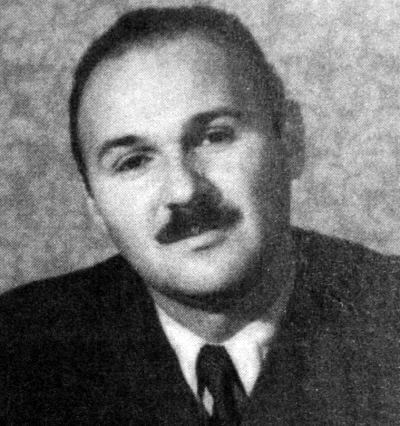
Većeslav Holjevac © Udruga Kameleon / Wikipedia
Hrvoje Klasić was professionally most occupied by Većeslav Holjevac, so he also shares Goldstein's opinion about Većeslav Holjevac.
„In a sentence: Zagreb has never been more developed as it was after Holjevac“, summarized Klasić.
Hrvoje Klasić graduated in 1997 from the Department of History, Faculty of Humanities and Social Sciences at the University of Zagreb. At the same University, he defended his dissertation entitled “1968 in Yugoslavia. Socio-economic changes in an international context”. Since 2003 he has been employed as a professor at the same Faculty and University.
Today, he holds a number of courses related to the world and national history of the 20th century.
Hrvoje Klasić also won the Annual Award of the Association of University Teachers and other Scholars in Zagreb in 2006. That same year he won the Annual Award of Sisak City for the Book „Croatian Spring in Sisak”. He is the author of 3 more books and the author of two documentary series „Croatian Spring“, and “The Independent State of Croatia” produced by Croatian Television. In 2017 The Serb National Council in Croatia gave him an award for the improvement of Croatian-Serbian relations. In 2019 he won the Award for the promotion of peacebuilding, nonviolence, and human rights.
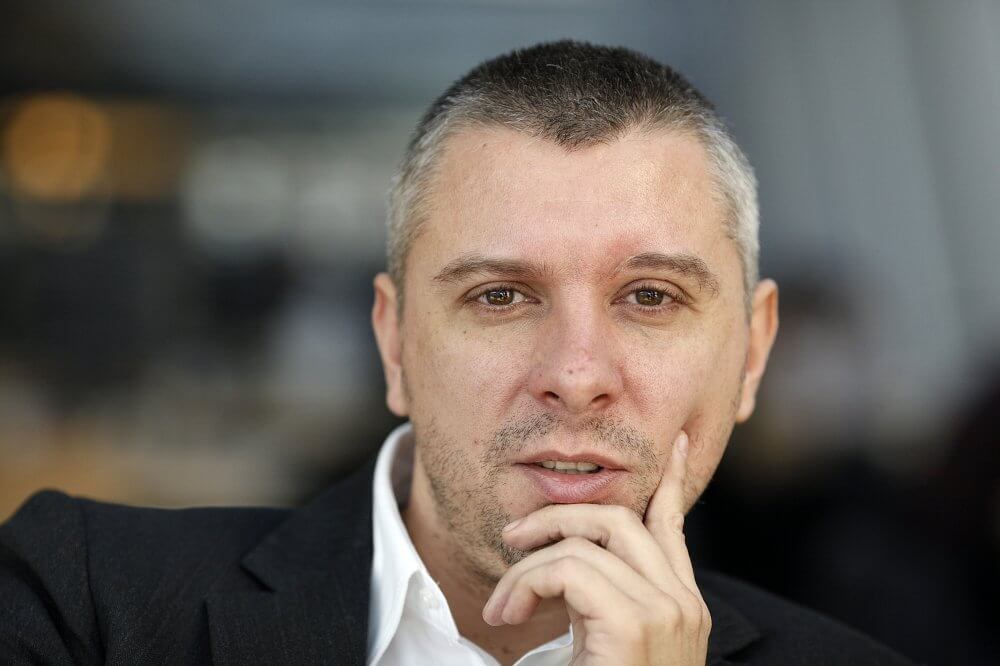
Hrvoje klasić © Hrvoje Klasić
„Most people don't know that Holjevac technically wasn't a mayor, rather he was a president of the City's National Council“, explained Klasić the precision of the functions in the previous Yugoslavian state. He added that while his term lasted from 1952-1963, that is only partially true because he was first appointed to lead Zagreb in 1945.
„In 1945, he was named the city commander who was a military function but he was also in charge of food, traffic, working with several refugees after World War 2 until he gave the control over to civilian bodies“, describes Klasić.
Holjevac then moved on to be the minister of work and traffic in the Social Federal Republic of Croatia. However, at that time, Yugoslavia was going under a change in its political institutions by the self-governing policy which went under parole „factories to workers, cities to citizens“, and as a result, Holjevac 's ministry was shut down. His return to the top position in Zagreb happened without him even knowing.
„As part of self-governing, the Communist Party in Zagreb searched for someone who isn't just going to execute orders from above but instead is an individual that has quality, creativity and will make its own decisions. Holjevac was elected during a meeting he wasn't even present on, and some members of the party were worried is it smart to give Zagreb to a person who is from Karlovac“, said Klasić.
As Goldstein already mentioned, his term lasted over a decade, and Klasić adds that was a very unusual duration at the time.
While Goldstein already mentioned the traffic connections of Zagreb, Klasić said it is very hard to count everything Holjevac built, but he put focus on the industry. Industrial plants of organic-chemical industry, Zagreb heating plant, industrial plants of Pliva pharmaceuticals, Chromos paint company, Kemika, Zvijezda company, Katran, Badel company for alcohol spirits, an ice rink on Šalata, winter pool and gymnastics gyms on Mladost, Yugoton record company, Jadran Film, TV tower on Sljeme, Zagreb drama theatre, an emergency room in Draškovićeva, various elementary and high-schools, and began construction of Vatroslav Lisinski concert hall and more.
„Before Holjevac, there were 40,000 workers in Zagreb. After Holjevac, there was 110,000“, said Klasnić to illustrate the results which made the city the strongest industrial center in Yugoslavia. Apart from industry, Holjevac put a lot of focus on culture and education, as evident by building Workers University Moša Pijade for adult education (today's Public Open University Zagreb) and culture.
Holjevac's „Jump over Sava“ was done on the one hand to prevent interventions in old Zagreb, and on the other, the organizational construction of Novi (New) Zagreb saw the workers live close to the newly built factories.
As Goldstein already referred to Zagreb Fair as perhaps the most significant project of Holjevac's mandate, Klasić added that the unique geopolitical position of Yugoslavia as the bridge between east and west, thanks to the non-aligned movement, made the fair a key place worldwide.
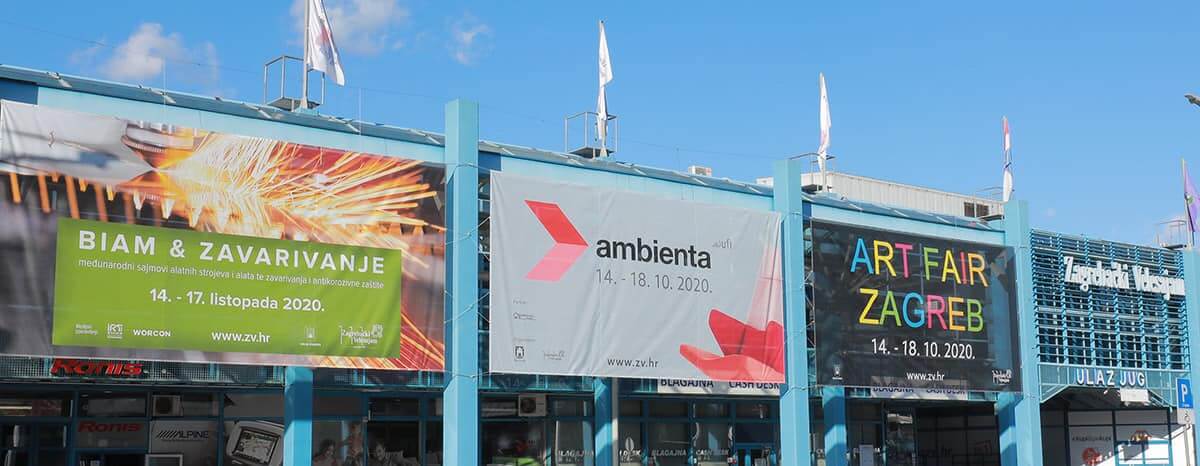
Southern entrance of Zagreb Fair in 2020 © Zagrebački Velesajam
„The fair was not just important for holding exhibitions, but for making deals and signing contracts as well. Given Belgrade was the capital of Yugoslavia, there were pressures to have such a fair there, and there were even boycotts from Belgrade to Zagreba Fair events. However, Holejvac being both persistent and enjoying support by the Yugoslavian president Marshall Josip Broz Tito, managed to keep this significant place in Zagreb“, explained Klasić.
When asked about resentment of other politicians, and the unclear mystery of concluding his mandate, Klasić said he had a chance to look at archives about Holjevac while working on an exhibition about him, and he feels that the situation is much simpler.
„Holjevac basically left due to the same politics that got him to be the mayor in the first place. The Self-Governing model started descending to the lower levels of the system and started searching for creative people. In 1963, a new constitution was brought that further developed the political system to give City Assembly more power accenting the community governing Zagreb. Holjevac's president of City's National Council title has shut down, and the president of Assembly became the first man of Zagreb.
Rotation of politicians as well as limited mandate time was arranged too“, explained Klasić.
He added, however, that it is problematic that an experienced, capable, brave, and brilliant man like Holjevac wasn't put to better use after he stopped being mayor and played bigger roles in Yugoslavian political life.
There isn't the best, only good and bad mayors
Unfortunately, other historians, I contacted (and of course, I couldn't contact every single one, who knows who else might be interested to participate), didn't respond to my inquiry. While Ivo Goldstein explained rating mayors isn't historian's job, Stevo Đurašković, professor at the Faculty of Political Sciences in Zagreb, further elaborated the problem of my question.
„I'm not a fan of such an approach to the topic like it's a miss pageant. In Zagreb's history (as in good portions of cities around the world). There were several great mayors, again, each in its own historical context“, explained Đurašković.
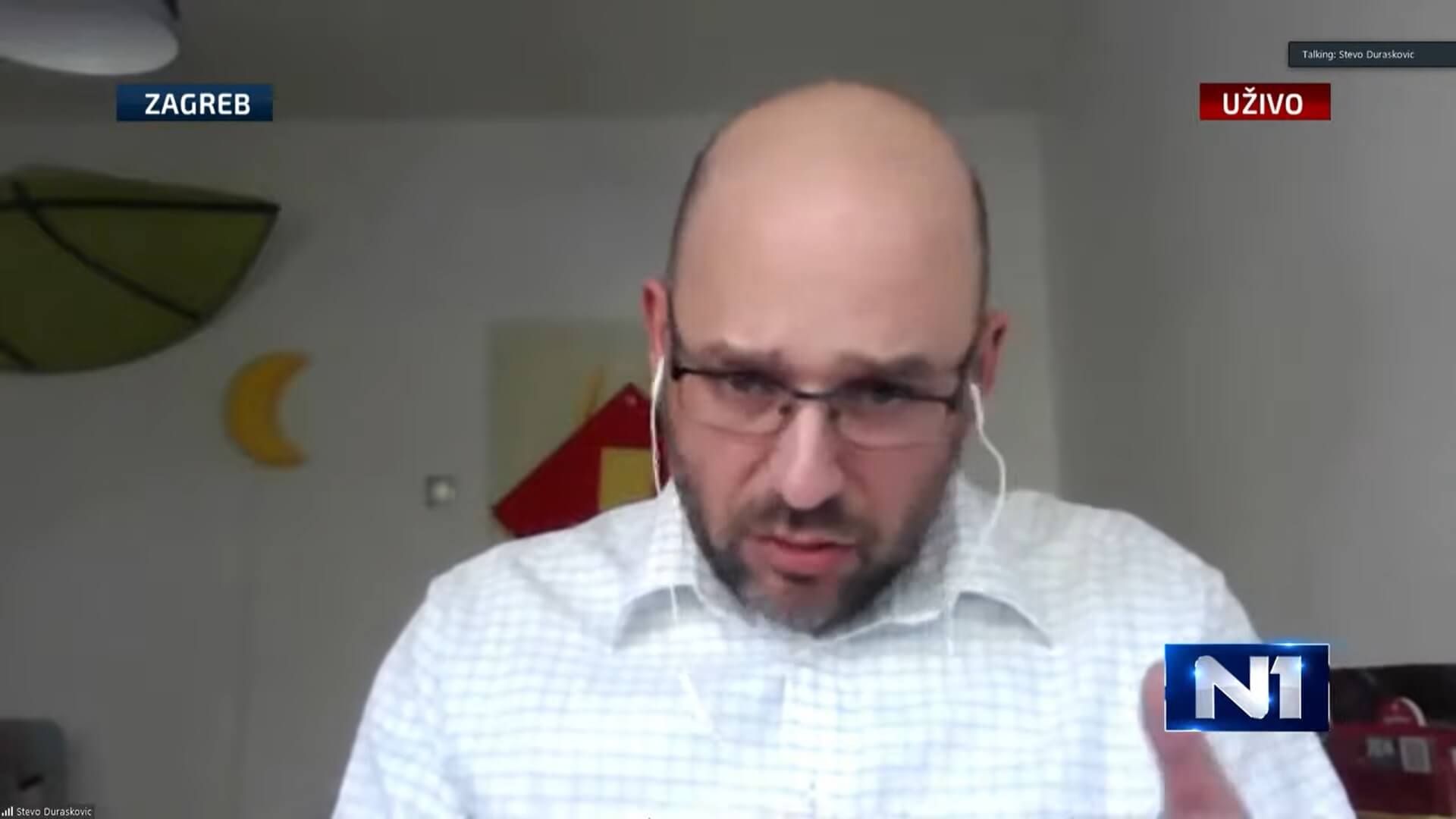
Stevo Đurašković, screenshot / N1
Stevo Đurašković is an Assistant professor at the Faculty of Political Sciences, University of Zagreb, where he teaches courses in politics of history and Croatian history. He received his Ph.D. in Political Science from the Faculty of Social Sciences at the University of Ljubljana and his MA in Central European History from the History Department at the Central European University, Budapest. His research interests include the politics of history, intellectual history, and national identity-building processes in East-Central and Southeastern Europe. Recently he published the book The Politics of History in Croatia and Slovakia in the 1990s (2016). Participated in several international projects, including “Identity Reader: Regional Identity Discourses in Central and Southeast Europe, 1775-1945” (CAS, Sofia). He is a member of the editorial board of the Cultures of History Forum (Imre Kertész Kolleg, University of Jena). In 2009/2010. He was a Ph.D. research fellow at the Faculty of Economic and Social Sciences, Comenius University, Bratislava (CEEPUS grant, Visegrad Fund grant).
In other words, an expert in his respective field with a valid and knowledgeable opinion.
„Milan Amruš and Većeslav Holjevac were great mayors. How to determine if Amruš's development of pre-war Zagreb is greater than Holjevac's post-war development of Zagreb?“ concluded Đurašković his decline to comment who would be the best mayor of Zagreb.
Speaking of Amruš, he was Zagreb mayor in two separate mandates, the first one lasting from 1890 to 1892 and the second from 1904 to 1910. Lice Grada reports that some of the accomplishments in Maruš terms include electrification of the city, and building up Munjara Power Plant (in 1906 and 1907). Under Amruš's mandate, the website continues, horse trams were replaced by electric trams in 1909 and new tram lines and the expansion of the previous one from Ilica to Topnička Barracks were constructed. In addition, 1890 saw lower and upper Zagreb connected by a funicular.
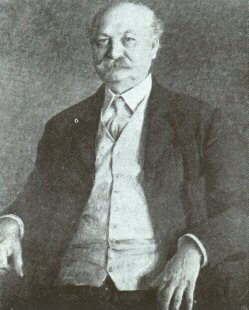
Milan Amruš © Unknown author Wikipedia
Đurašković also added in his decline that Pero Pirker is often „a forgotten mayor“, and Klasić mentioned him as the Holjevac's successor. Mentions of Pirker are also noted on Nacionalne Manjine (National Minorities) site that declared Pirker as a noted Zagreb mayor.
"There is no doubt that Pirker is one of the most capable, most successful, and in its time an extremely popular mayor. But it is stunning that for political reason, considering he was one of the established champions of Croatian Spring in 1972, his work was completely silenced not only until the 1990s but also later“, wrote Goran Beus Richembergh for Nacionalne Manjine.
It's worth noting that the Croatian Spring was a reawakening of national identity which paved the way for the country's independence and the dissolution of Yugoslavia, on which TCN reported on its 50th anniversary earlier this year.
In Pirker's time, the Great flood that sank Zagreb in 1964 was truly the historical challenge of his mandate.
„It was a natural disaster of great extent, and the entire previous state (Yugoslavia) was involved in sanitation and help was arriving from all over the world. But, the biggest responsibility for the coordination of help, sanitation of the damage, taking care of the casualties, and building new homes was carried out by Zagreb's authorities, lead by Pirker who showed to be a skillful manager and successful in various projects“, described Beus Richembergh.
Amruš had the challenge to electrify Zagreb to keep up with other European capitals, Holjevac had the challenge of restoring and developing the city post WW2, and Pirker had the flood.
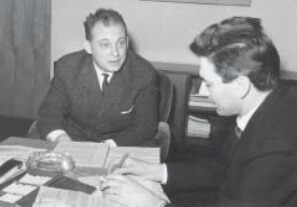
Pero Pirker (on the left) © Croatian Journalist Association / Wikipedia
Both corona and earthquake, as well as the mess suspected to find post-Bandić, are all just another challenge in the history of a town that is used to be challenged and always dancing victory laps.
While Đurašković explained comparisons of what was the most difficult challenge and who was the best mayor make no sense, Goldstein and Klasnić presented their pick. But, as respectable historians they are, they emphasized that it is their opinion and not an empirical fact, even though their arguments are both knowledgable and well explained.
In the end, politics should be about making people's lives better and not about chasing crowns or historical acknowledgments. And as Zagreb really needs a quality leader, the only logical conclusion is: may the best candidate wins, and may purgers recognize the best man or women for Zagreb to once again wave the middle finger to the aftermaths of the recent crisis as it overcomes them.
Learn more about Zagreb on our TC page.
For more about history in Croatia, follow TCN's dedicated page.
Oleg Butković Presents Reforms And Investments For Transport Sector
ZAGREB, 7 May, 2021 - A part of the National Recovery and Resilience Plan (NPOO) refers to developing a competitive, energy sustainable and efficient transport system, and it is valued at HRK 5.5 billion, Minister of the Sea, Transport and Infrastructure Oleg Butković said on Friday.
The National Recovery and Resilience Plan totals HRK 47 billion and comprises five components, with the economy component valued at HRK 26.2 billion. That component includes a sub-component on developing a competitive, energy sustainable and efficient transport system, with investments worth HRK 5.5 billion, recalled Butković.
The plan, he said, foresees the continuation of significant investments in modernising transport infrastructure with the aim of developing a sustainable transport system and stimulating the development of smart solutions as well as reforming rail, road and air transport as well as maritime and inland navigation.
We are prepared to make these reforms and that is an opportunity to continue the current strong investment cycle in transport infrastructure, which amounts to more than HRK 25 billion. With the resilience programme we are continuing that investment cycle which will amount to more than HRK 30 billion by 2030, particularly in railway projects as well as all the other projects, said Butković.
He announced that reforms would include amendment of the Roads Act by 2026 to create conditions for the interoperability of electronic road toll systems and improve road safety.
Answering reporters' questions, Butković said that the Hrvatske Autoceste road management company is well on its way to advertising a tender for a new contactless toll system at all motorways in the country.
He estimates that the tender could be advertised in September or October and that the new system will most likely mean the introduction of a digital vignette.
The plan also foresees the adoption of new laws on maritime zones and sea ports, on inland waterway transport and ports, and on regular and occasional sea transport to ensure uniform implementation of regulations on public port management.
The plan also includes the construction and reconstruction of railway infrastructure, the modernisation of sea ports, the procurement of three passenger ships and three catamarans, new ferry boats, trams, buses, a new photovoltaic power station, and the construction of a new Level 5 autonomous vehicle, said Butković.
According to Butković, HRK 2.8 billion of the HRK 5.5 billion planned to be invested in the transport system would be allocated to the private sector.
For more about politics in Croatia, follow TCN's dedicated page
Highlights of the Week: 5 Big Events in Croatia from May 3-9, 2021
May 7, 2021 - TCN's regular retrospect of Highlights of the week, through the selection of TCN's reporter Ivor Kruljac.
President Milanović loved by locals in Plaški. Firefighters quickly reacted to the fire in Zagreb recycle yard. Pula celebrated its liberation while Šibenik received new doses of coronavirus vaccines. Dinamo and Hajduk end their match in a tie. Overall another interesting week in Croatia, and here are more details on all highlights.
Highlights of the week: President Milanović loved in Plaški county
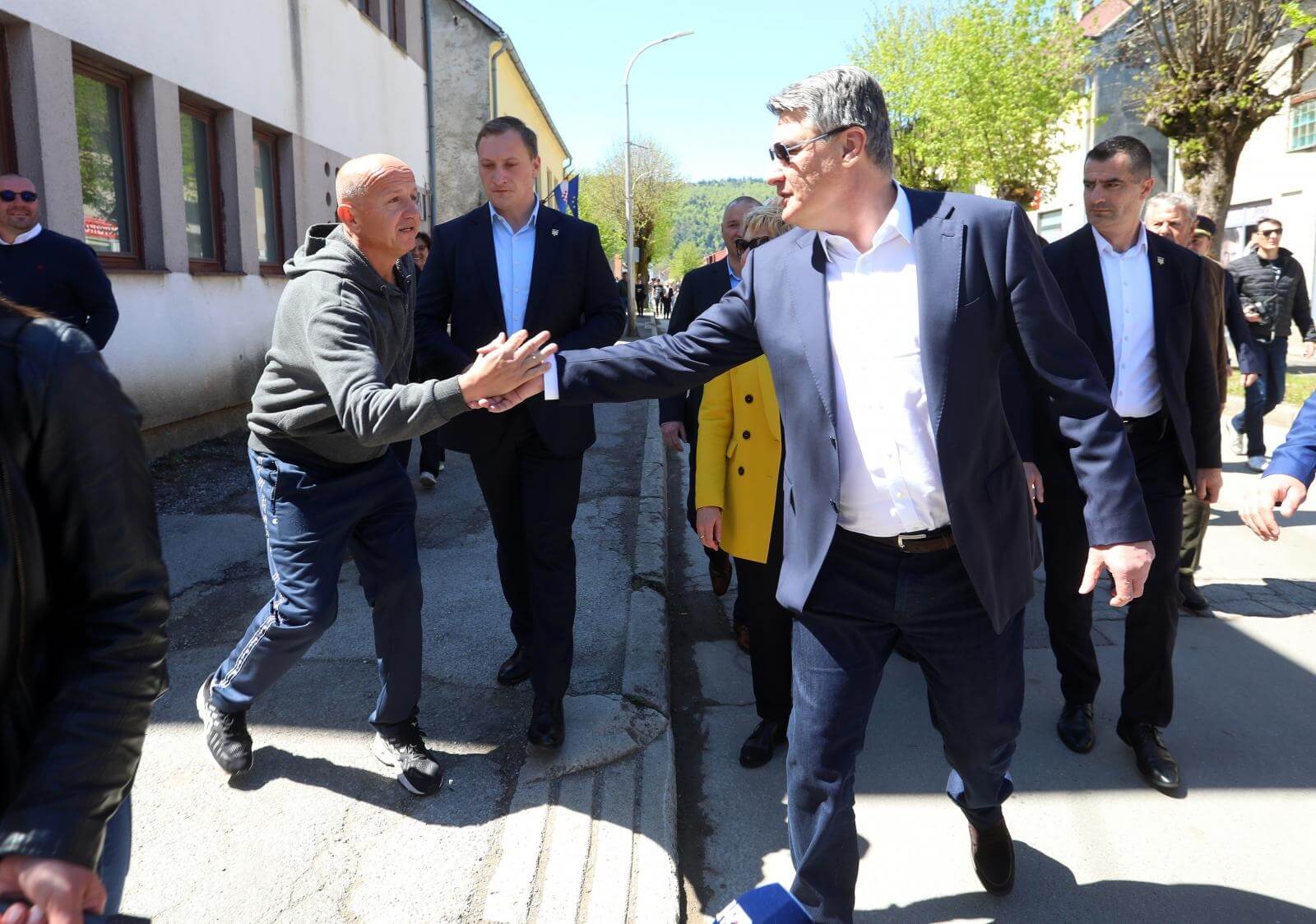
© Kristina Stedul Fabac/ PIXSELL
Croatian president Zoran Milanović visited Plaški county near Ogulin on Tuesday to visit the newly-build Firefighter's home and Plaški Culture Home. The locals welcomed president Milanović with ovations, and many use the opportunity to handshake and take a photo with the president. As Večernji List reports, Milanović took the visit as an opportunity to comment on the hate speech incident at Borovo Selo. He stated that the President of Serbian National Council Milorad Pupovac and Croatian Prime Minister „should use the police, but they don't, they are causing incidents.
Highlights of the Week: Pula celebrating its liberation in WW2
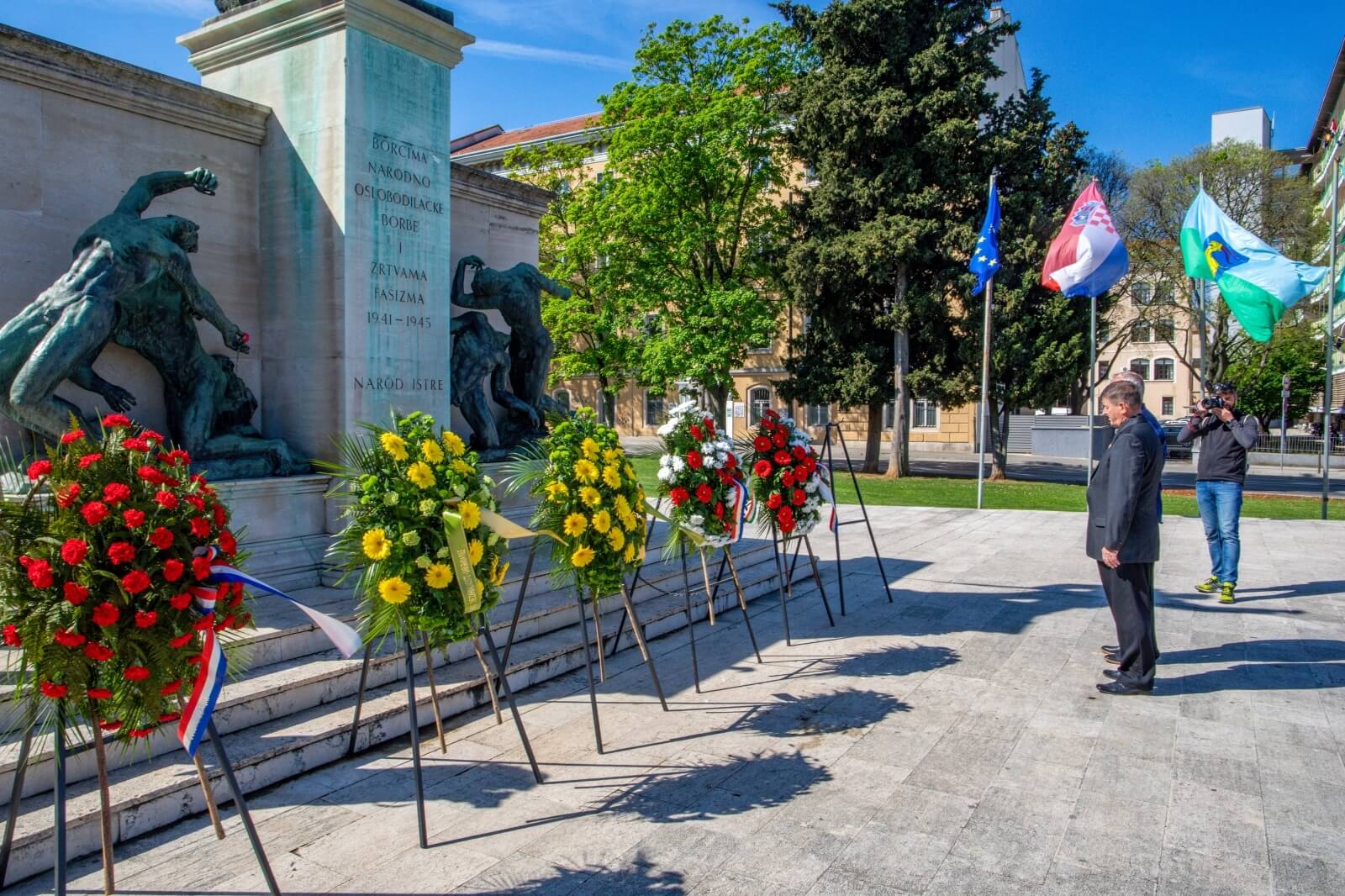
© Srecko Niketic/ PIXSELL
Pula celebrated its annual liberation day and the Pula City Day, marked on May 5. In Tito's park, the traditional commemoration to the fallen WW2 soldiers of Tito's partisan army saw Tiziano Sošić (president of Pula City Council), Elena Puh Belci (vice mayor of Pula), Aleksandar Matić (chief of the City of Pula Office) and Fabrizio Radin (vice-county ruler of Istria county) paid their respects. Representatives of associations of anti-fascist fighters and anti-fascist of the city of Pula were present too.
Highlights of the Week: Dinamo and Hajduk end with an even score 1:1
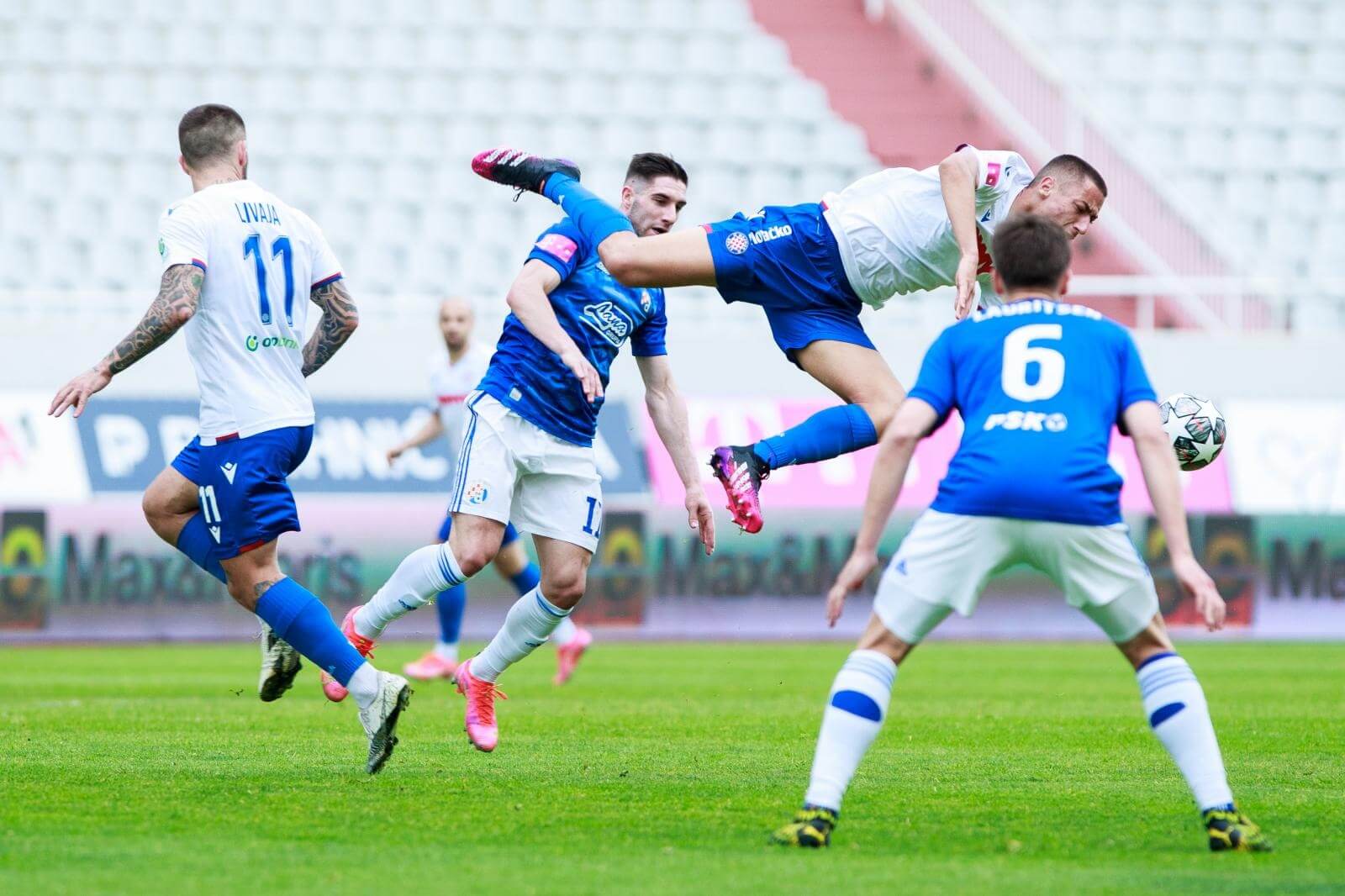
© Milan Sabic/ PIXSELL
Hajduk and Dinamo's eternal opponents played another game at Hajduk's home of Poljud Stadium in Split on Wednesday. The match was the 22nd round in Croatian First League, and fans couldn't wait for it as the game was postponed.
Hajduk opened the match well and had a chance to take the lead in the first 20 seconds. Kačaniklić received an excellent long ball and ran on the right side. He rushed into the penalty area and shot diagonally, but Livaković came out and closed his corner. Dinamo improved and took the lead in the 16th minute with a goal by Majer, and Livaja returned the favor in the 44th minute. Diamantakos hit the crossbar in the final minutes of the match but without success.
After three victories in the previous three clashes with Hajduk this season, Dinamo failed to achieve maximum performance and almost mathematically secured the title but entered the last four rounds with a seven-point advantage over Osijek. The fail happened despite Dinamo facing Hajduk with the strongest possible lineup.
Highlights of the Week: Vaccination in Šibenik continues successfully
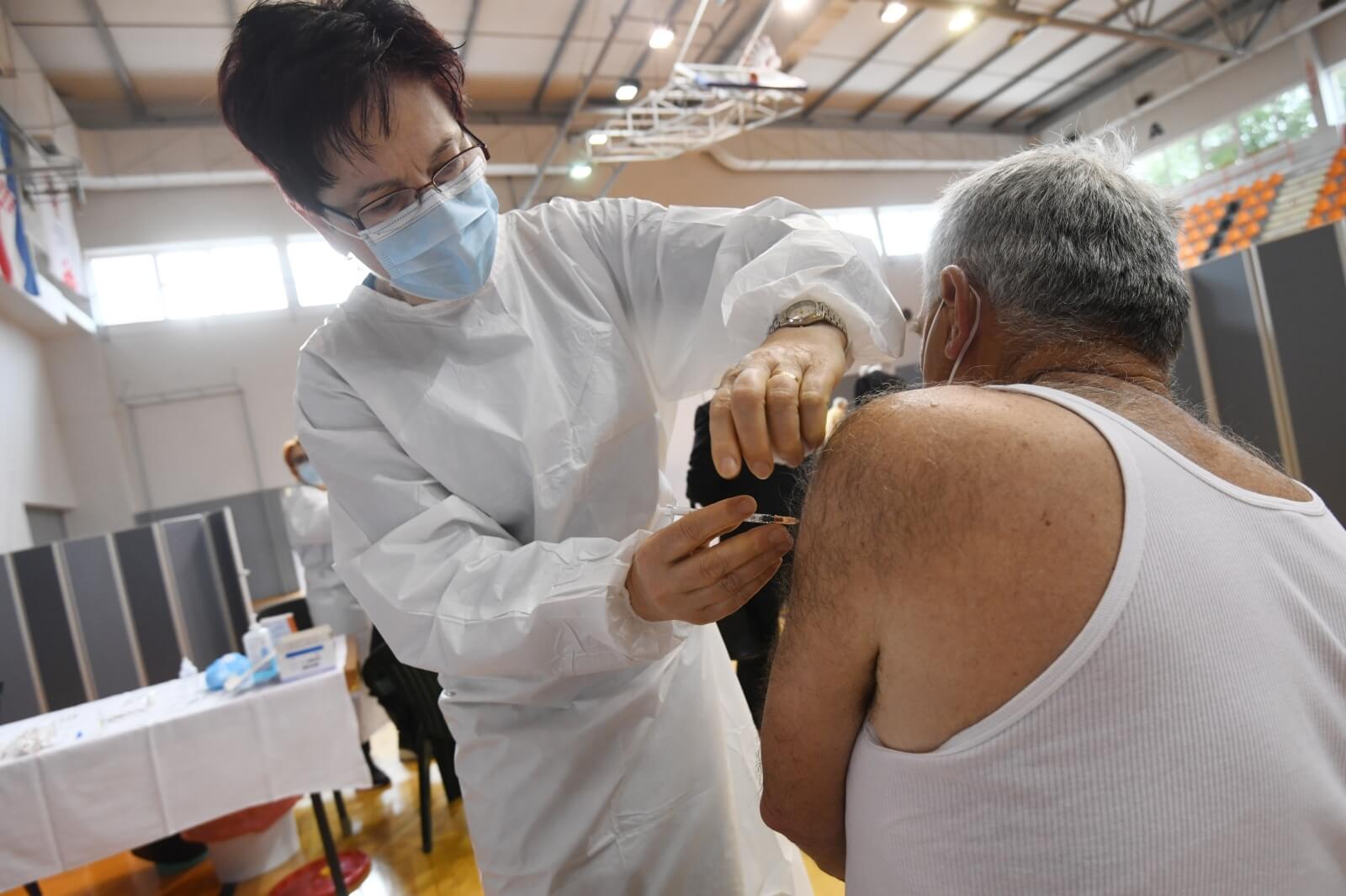
© Hrvoje Jelavic/ PIXSELL
Larger quantities of vaccines came to Šibenik on Friday, allowing vaccination in Baldeki Sports Hall to go without problems for the second day in the row. The vaccination attracts a number of citizens, so the area got quite crowded.
Highlights of the Week: Recycling yard in Zagreb on fire, reasons unclear
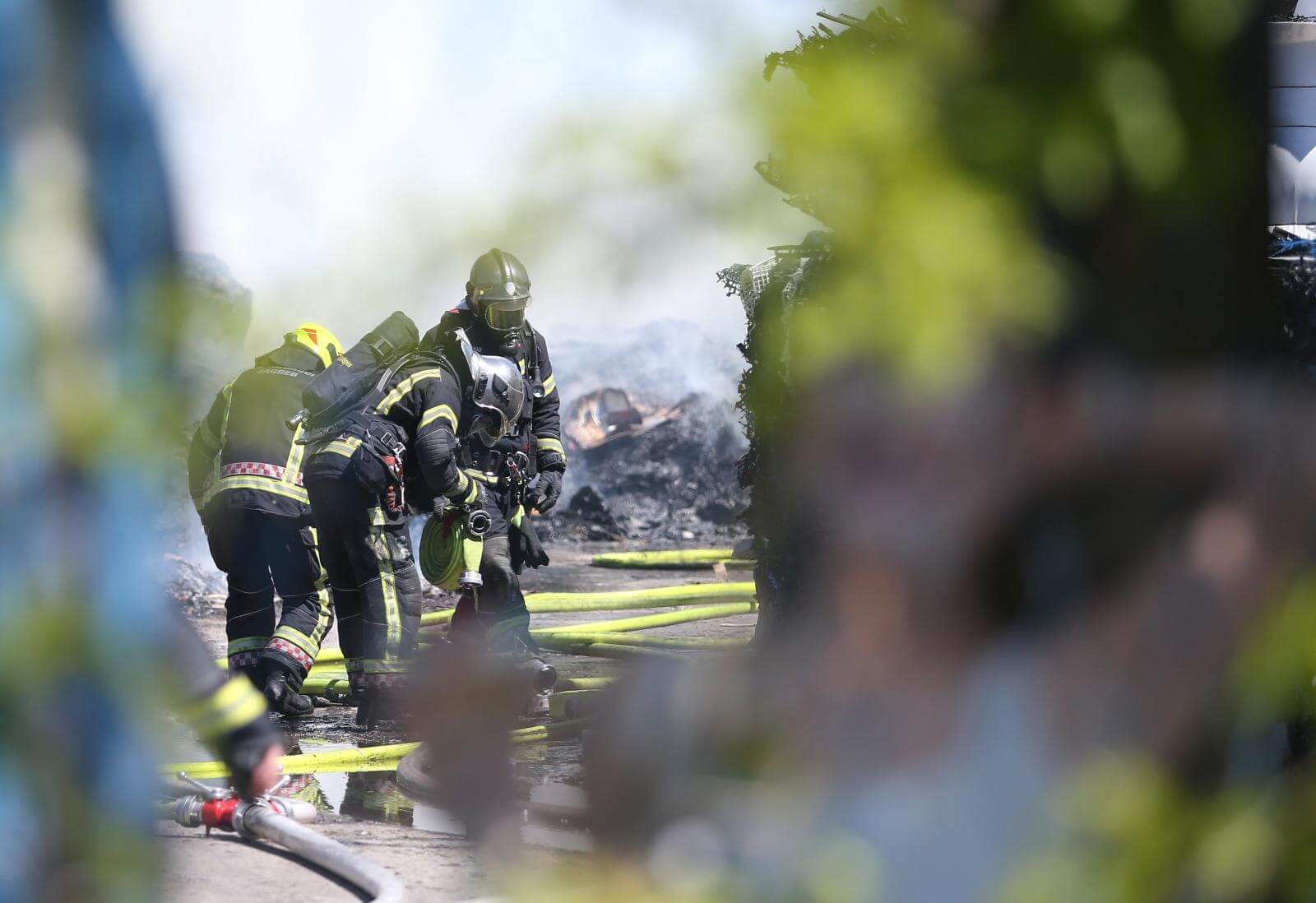
© Matija Habljak/ PIXSELL
Zagreb's recycling yard, located on Sarajevska Cesta in Novi Zagreb, was victimized by fire but quickly localized and put under control on Tuesday. The fire caught four containers, and 21 firefighters with six fire trucks rushed to the field. Police investigated the cause of the fire, but the reason is, for the moment, unknown. Firefighters managed to operate despite the lack of hydrants, and the thick white smoke was noticed by citizens who live in the buildings close to the yard, reported Večernji List.
To learn more about Croatia, have a look at our newly launched TC website.
For more about news in Croatia, follow TCN's dedicated page.
PM Andrej Plenković Says Gov't to Continue With Active Employment Policy
ZAGREB, 7 May, 2021 - Croatian Prime Minister Andrej Plenković, who is taking part in the Social Summit in Porto, said on Friday that his government would continue with its active policy towards workers because it considered workers to be important.
"After four years we are again focusing on social rights, workers' protection, social inclusion and dialogue, equal opportunities, the possibility to help our workers across the EU through the principle of European solidarity and to save jobs through cooperation," Plenković told reporters upon arrival in Porto, Portugal, where the summit is taking place.
Portugal, which has been chairing the EU since January, is hosting the summit at which the leaders of the EU's 27 member states will try to put into practice a document called "The European Pillar of Social Rights", agreed to four years ago.
Among the 20 principles stated in the document, are training and lifelong learning, gender equality, fair pay and workers' participation in talks on forms and conditions of work.
"In that regard, Croatia has done quite a lot in the past 15 months," said Plenković.
"We have saved jobs, supported workers, as well as employers. Numbers speak for themselves, today we have more insurees than we had last year, and what is more important, we have more than we did in 2019," he said.
"We have invested more than €10 billion in workers' wages, secured funds for those who had to work shorter hours, as well as for fixed costs, making it possible for more than 120,000 employers to keep their workers and pay wages," he said.
Croatians, just like citizens of other EU countries, have felt the health and economic consequences of the coronavirus crisis. Thousands of workers have lost jobs and many fear poverty.
According to figures form the Croatian Employment Service, the unemployment rate in Croatia is 9.3%.
"The state has exempted many from paying both taxes and contributions. We will continue with an active employment policy," Plenković said.
Portugal's Socialist government in January set strengthening social rights in Europe as on of its priorities during its EU presidency, which ends in June.
The European Commission in March presented a plan under which the number of poor people in the EU would be reduced by 15 million by the end of 2030.
The forum in Porto focuses on that plan and PM Plenković is expected to participate in a panel discussion on that topic later in the day.
The Porto summit is taking place one week after International Workers' Day, when workers across Europe once again pointed out their difficult situation.
For more about politics in Croatia, follow TCN's dedicated page.
Serbian President Aleksandar Vučić Says Croatia Trying To Humiliate Serbia With Participation in Kosovo Force
ZAGREB, 7 May, 2021- Serbia wants to have good and fair relations with all neighbouring countries but Croatia's actions and statements by its officials are not expressions of respect for Serbia but an attempt to humiliate it, Serbian President Aleksandar Vučić said on Friday.
In a comment on the statement by Croatia's foreign minister that Croatia would increase the number of its troops in the NATO-led Kosovo Force (KFOR) because that was important for maintaining peace in the region and on disputes triggered by Serbian Minister of the Interior Aleksandar Vulin's statements, Vučić said that Croatia could have refused to serve in KFOR but opted to do the contrary "in order to additionally humiliate Serbia."
Croatia's Foreign and European Affairs Ministry stated earlier in the day that Serbia's strong reaction to the planned deployment of a greater number of Croatian troops in Kosovo was "a hysterical speculation" intended to divert attention from the introduction of the Bunjevci dialect as an official language in the northern Serbian town of Subotica, which it considers an attempt to fragment the Croat community in Serbia.
The Serbian president today wondered "why anyone would need to participate in the KFOR mission or brag about it", alluding to Croatia's involvement in the international peace mission.
"They could have refused to take part in KFOR, but they intentionally made that decision to additionally humiliate Serbia. We get the message," Vučić told Serbian reporters during a visit to Obrenovac.
In a message to Serbs in Kosovo, he said that they "should not worry" and that he would soon talk with NATO Secretary-General Jens Stoltenberg in Brussels, stressing Serbia's commitment to avoid conflicts and maintain peace.
"My message to all those who think that there will be new Storms, new pogroms and expulsions - I guarantee that that will not happen," Vučić said in reference to the 1995 Croatian military and police operation that liberated areas previously held by local Serbs who rebelled against the Croatian authorities.
For more about politics in Croatia, follow TCN's dedicated page.
Culture and Media Minister Nina Obuljen Koržinek: Concept of HRT Management Inaugurated During Zoran Milanović's Premiership
ZAGREB, 7 May (Hina) - Culture and Media Minister Nina Obuljen Koržinek said on Friday that she was shocked by President Zoran Milanović's attack on the HRT public broadcaster, adding that she had always stood up for press freedom.
"The government has no ambition whatsoever to influence any media outlet in Croatia. Quite the contrary, I believe that we strengthen democracy and all the values in society if we try to ensure conditions for reporters to do their job professionally and without any pressure," Obuljen Koržinek said after a ceremony of opening a library in the town of Delnice.
She condemned Milanović's statements in which he attacked an HRT correspondent in Split, refusing to answer her questions and saying that the HRT was not a public broadcaster but was serving the interests of the ruling Croatian Democratic Union (HDZ).
"I think that Milanović is the last person who can call out anybody," Obuljen Koržinek said, stressing that the concept and legislative framework for the HRT management had been inaugurated during his term as prime minister.
She went on to say that in her capacity as the minister of culture and media, she had always stood up for the autonomy of the media, notably reporters.
Union leader: Milanović attacks journalists who are not responsible for HRT's policy
Croatian Journalists' Union leader and HRT reporter Maja Sever said on Thursday that the reporters whom Milanović verbally attacked earlier in the day were not responsible for the public broadcaster's editorial policy and that he was among those who had failed to ensure HRT's autonomy.
Also on Thursday, the Journalists' Union and the Croatian Journalists' Association (HND) branch at the HRT condemned Milanović's statements, but also noted that the HRT under current director Kazimir Bačić was not an independent public service and that the government led by PM Andrej Plenković was responsible for that.
For more about politics in Croatia, follow TCN's dedicated page.
DEFENDER-Europe-21: Zadar Doing Its Part in Large NATO Exercise
May 7, 2021 - As part of NATO, Croatia participates in a large military exercise called DEFENDER-Europe-21, and UK and US navy ships arrived in Zadar with valuable equipment to be distributed among training areas in Croatia and Bosnia and Herzegovina.
Large-scale, multinational, and army-lead, DEFENDER-Europe is a joint exercise designed to build readiness and interoperability between the U.S., NATO, and partner militaries. This year's edition DEFENDER-Europe-21, as reported by U.S. Army Europe and Africa website, focuses on „Building operational readiness and interoperability with a greater number of NATO allies and partners over a wider area of operations is defensive in nature and focused on responding to the crisis if necessary“, and also shows that „the U.S. commitment to NATO is ironclad.“
The exercise also includes strict COVID prevention and mitigation measures, such as pre-deployment COVID testing and quarantining and the U.S. Air Force and U.S. Navy show significant involvement and will utilize key ground and maritime routes bridging Europe, Asia, and Africa – continues the website.
„Exercises new high-end capabilities such the new U.S. Army Security Force Assistance Brigades, air, and missile defense assets and the recently reactivated V Corps and demonstrates our ability to serve as a strategic security partner in the western Balkans and the Black Sea regions while sustaining our abilities in northern Europe, the Caucasus, Ukraine, and Africa“, adds the exercise goals the official U.S. Army website.
Apart from the U.S., Approximately 28,000 multinational forces from 26 nations conduct nearly simultaneous operations across more than 30 training areas in 12 countries, and as a NATO member, Croatia has not been left out of the drill.
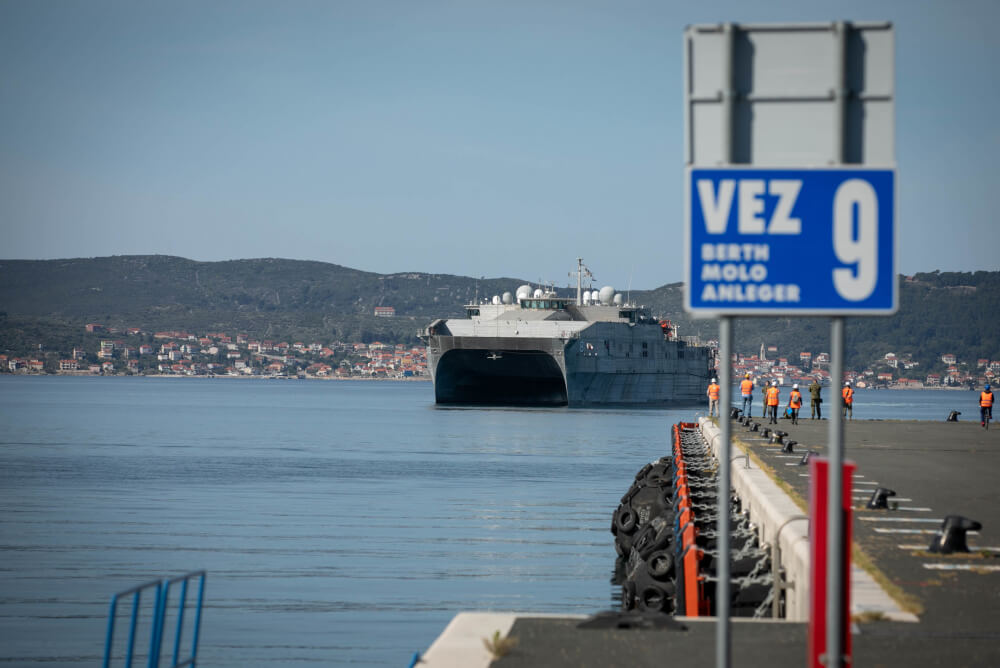
U.S. Naval Ship Yuma arrives in Zadar, Croatia © Sgt. Alexandra Shea
As part of the exercise, U.S. Naval Ship Yuma and U.K. Vessel Hurst Point off-loaded more than 300 pieces of military equipment in Zadar, Croatia’s Gazenica port, after ferrying it from Durres in Albania. The delivery started on Tuesday, May 4, and it was concluded on Friday. The journey of the equipment started back on March 24 at the Port of Jacksonville in Florida. The local U.S. National Guard units were shipping the equipment for three days onto USNS Bob Hope (T-AKR 300) after which, the ship stopped by Portsmouth in Virginia for the final pieces of equipment before heading towards Durres in Albania. In Durres, the smaller vessels took the equipment and finally loaded it to Yuma, and Hurst Point, which brought it to the gem of Northern Dalmatia, Zadar.
„This process is called Joint Logistics Over-the-Shore, a method used to ensure swift delivery of supplies and equipment in a variety of port situations“, explained the press release.
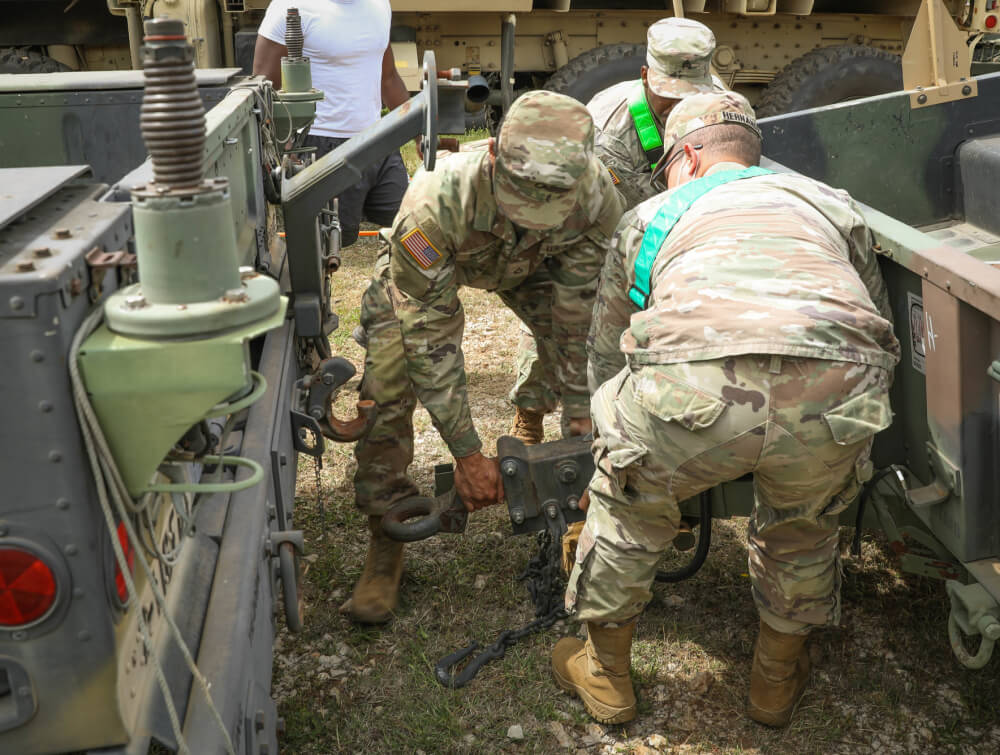 U.S. equipment leaves for training area © Sgt. Joshua Oh
U.S. equipment leaves for training area © Sgt. Joshua Oh
While many would probably stop at Zadar and chill for a lovely holiday, the equipment, however, will continue its journey. Part of the equipment will remain in Croatia, but it will be transferred to Slunj, home of the Main Training Area, and the rest goes to training areas scattered in Bosnia and Herzegovina (BiH). In BiH, the drills and maneuvers for which the equipment will be used are under the umbrella of the linked exercise named "Immediate Response 21” which will culminate in a joint, multinational live-fire demonstration called “Croatian Rampart 1991-2021” at the end of May. Not just as a test of possibility in the „God-forbid-we-are-attacked“ scenario, Croatian Rampart 1991-2021“ also celebrates the 30th anniversary of the Croatia Armed Forces.
The Main Training Area in Slunj, Croatia and training areas throughout Bosnia and Herzegovina to be used in drills and maneuvers alongside members of the Croatian Armed Forces, under the umbrella of the linked exercise named "Immediate Response 21.” The exercise culminates in a joint, multinational live-fire demonstration called “Croatian Rampart 1991-2021” - which celebrates the 30th anniversary of the Croatian Armed Forces at the end of May.

British Major Dan Cornwell talking to Croatian press, screenshot / Defense Flash News
British Major Dan Cornwell told the Croatian press that the idea of being in Zadar is that Croatian, U.K., and U.S. forces operate together in loading U.S. equipment and personnel.
„We've done this before, on exercise last year in Germany, and I can say, it's a lot better down here in the south, it's absolutely amazing to be here in Croatia to do this alongside Croatian Armed Forces where we can better understand how we operate differently, how we operate similarly and equally building up our interoperability and our ability to operate better in the future“, said Maj. Cornwell, indicating that perhaps he can find Zadar, like many others, as a great holiday destination and not just the line of duty.
Learn more about Zadar on our TC page.
For more about the army in Croatia, follow TCN's dedicated page.
GONG Criticises Parliament For Not Publishing Information On Voting
ZAGREB, 7 May, 2021 - The Croatian Parliament is the only parliament in the European Union that, on the pretext of the coronavirus pandemic, has not been publishing reports on the voting of MPs for a year, the non-governmental organisation GONG said on Friday, considering this to be an attack on democracy.
"The epidemic has seriously affected the democratic standards in the work of the Croatian Parliament. It is unacceptable that since March 2020 and the declaration of the state of the pandemic, the Sabor has denied the public key information on the work of lawmakers, hiding behind the epidemiological measures and the shortcomings of the electronic voting system, which is designed for use only in the main chamber," GONG said in a statement.
The governing parties are relying on a slim majority of 76 MPs in the 151-seat Parliament, and the information on how each lawmaker voted on a bill is of great interest to the public, it noted.
GONG said that Parliament has been neglecting the basic democratic standards in adapting to the epidemiological measures, recalling that the Constitutional Court had found the provisions of Parliament's Rules of Procedure limiting the number of MPs at plenary sessions to be unconstitutional.
It said that after the Constitutional Court ruling Parliament Speaker Gordan Jandroković had announced a possibility of forming a task force to draw up amendments to the Rules of Procedure, but that six months have gone by since then and there has been no mention of amendments any more.
GONG appealed to Parliament to start looking for a way to regain the public confidence it has lost and urged MPs to demand greater accountability from Parliament.
For more about politics in Croatia, follow TCN's dedicated page.
Minister Josip Aladrović Says Union Tax Only a Proposal
ZAGREB, 5 May, 2021 - Labour, Pension System, Family and Social Policy Minister Josip Aladrović on Wednesday denied reports that "a union tax" would be introduced, noting that media had wrongly interpreted the social dialogue on the new labour law and that that was just one of the proposals.
"I must specifically decline the possibility of introducing a so-called union tax in the form that the media tried to depict it," Aladrović told reporters after a meeting of the inner cabinet.
As for speculation that the government could accept the union proposal for the introduction of such a tax, that is, obligatory payment of a union membership fee even for workers who are not union members, Aladrović said that "the media had misinterpreted the social dialogue."
In the National Recovery and Resilience Plan and talks with unions on the new labour law, the government has decided to strengthen and encourage social dialogue and collective bargaining but that does not mean that all proposals are automatically accepted, he said.
"Certain proposals and solutions have been interpreted as if they are going to go into force immediately, but that is only one negotiating possibility, one of the proposal by workers and nothing more," said the minister.
He added that consultations with unions and employers on the new labour legislation were finished, that agreement had been reached on many issues and that soon a task force would be set up to draw up a new law.
No comment on court ruling in case of gay couple's motion for adoption
Aladrović would not comment on the Zagreb Administrative Court ruling in the case of life partners Mladen Kožić and Ivo Šegota, stressing that it was a non-final ruling.
The Rainbow Families association of LGBTIQ couples and individuals who have or want to have children said earlier in the day that the court had decided that Kožić and Šegota had been discriminated against when in 2016 they were prevented from undergoing the process of evaluation for adoption.
In 2020 the two men were granted the right to provide foster care.
The association's president, Daniel Martinović, said the court ruled that the two men must not be discriminated against because they are life partners.
The ruling, Martinović said, confirms that life partners in Croatia can adopt.
He noted that the ruling was still not final and expressed a wish for the Ministry of Labour, Pension System, Family and Social Policy not to appeal against it, thus respecting a Constitutional Court ruling of 2020 in which the court concluded that everyone should be enabled to participate in the provision of foster care under equal terms.
"We saw the ruling this week, we are still analysing its effects and legal possibilities," said Aladrović.
He noted that the HDZ party had expressed its political position on the matter through the Family Act and the Foster Care Act.
"We will act in line with decisions of Croatian courts, but this is only a non-final ruling," said the minister.
For more about politics in Croatia, follow TCN's dedicated page.


